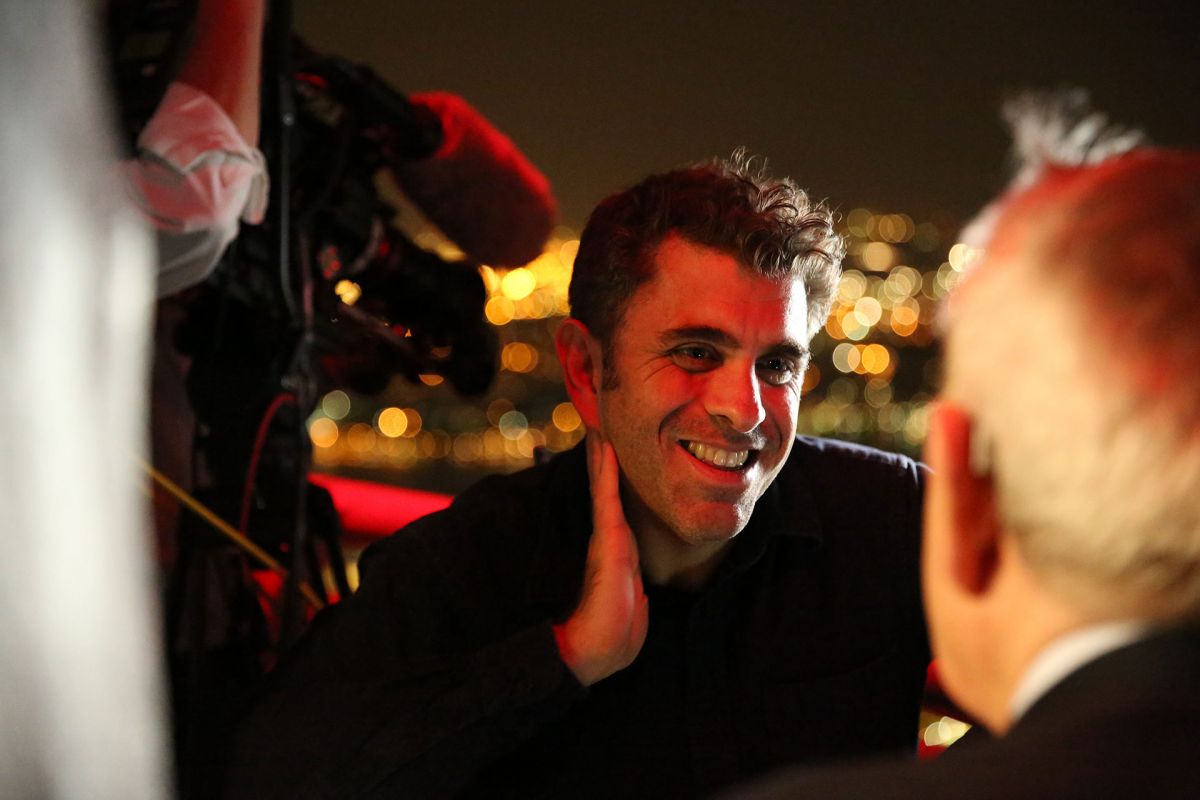
Documentary filmmaker Eugene Jarecki’s pedigree is impressive. He has twice won the Sundance Film Festival Grand Jury Prize and the Peabody Award for: The House I Live In, his 2013 film about America’s War on Drugs (which had its broadcast premiere on Independent Lens); and for his 2005 film about American foreign policy, Why We Fight. While he’s often taken a thoughtful yet sweeping approach you’ll find in his new film The King, it still represents a fascinating departure.
Along with co-producer Steven Soderbergh, Jarecki passed along a few thoughts about The King, which is ostensibly “about” Elvis Presley, but really about all of us as Americans.
Eugene Jarecki: “I set out in Elvis’ car because he’s the poster child of what we’re taught to think of as the American dream, right? The poor country boy who rises like a rocket and ends up a king. But from there, it gets more complicated, for Elvis and America. For Elvis’ dream ended in a tragedy of lost authenticity, addiction, and self-destruction. And, at this point, I don’t think I need to tell anyone what a tangled mess America has become. But how did this happen? And is there, in the demise of Elvis, a cautionary tale for his country? For the world?
“From the start, Elvis was a metaphor for the best and worst of America. This was never going to be a puff piece but a cautionary allegory: power and money compromised Elvis’ life and authenticity and did the same to the democratic health of his country.
“As I went along, the American dream itself came into question. What had it ever been? For whom was it true? For whom not? Suddenly, when a billionaire oligarch was elevated to high office, the story became a warning siren of national, and even global, concern.”
“More than any film I’ve made, alongside the inevitable intensity of The King‘s content, it was designed to promote a continued love affair with the very country whose direction it despairs. This is why such a wide and colorful tapestry of luminary and non-luminary Americans appear, sharing their stories, thoughts, and songs.
“As the Rolls traverses the scorched landscape of an apocalyptic modern America, its passion to make things better is fueled by the beauty, majesty, and awesome resilience of their collective spirit. No other force can possibly hope to compete with the perilous cocktail of power and money that daily undermine all walks of American life.”
Steven Soderbergh: “It has a wonderful kaleidoscopic quality that I think is not only unique to Eugene, but also, I think unique to the country. I don’t know of any other country would allow for the level of exploration that the United States provides just strictly because of its geography. So the idea of Eugene taking Elvis’ Rolls-Royce and driving through the country to talk to people, that’s a very specifically American movie idea. And I think would only work in America.”
Jarecki: “The idea that we — and Elvis — were young once and beautiful but then lost our way is dangerously idealistic. It might be more accurate to say that America and Elvis were always imperfect – works-in-progress, full of greatness and shortcomings. While Elvis was ultimately by consumed his, we seem to be very much at work on ours, and there is clearly much work left to wake up tomorrow and do.”

